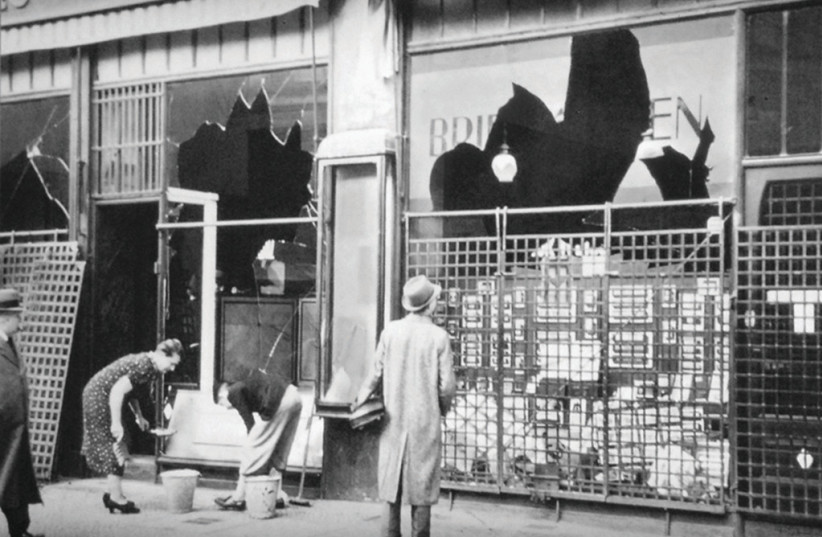Nov. 8, 1948:
The first census by the government of Israel was taken, totaling 712,000 Jews and 68,000 Arabs.
Nov. 9, 1938:
A massive Nazi pogrom, which later became known as Kristallnacht (the Night of Broken Glass), took place throughout Germany and Austria.
Encouraged by their leaders, rioters attacked and beat Jewish residents, burned and destroyed 267 synagogues, vandalized or seized 7,500 Jewish businesses, and ransacked countless Jewish cemeteries, hospitals, schools, and homes, while police and firefighters stood by.
In addition, 91 Jews were killed, and 20,000 others were sent to concentration camps.
Nevertheless, the Jews were held responsible and fined a billion marks!

Nov. 10, 1975:
The UN General Assembly adopted the notorious Resolution 3379, defining Zionism as “a form of racism and racial discrimination” by a vote of 72 to 35 (with 32 abstentions).
Nov. 11, 1864:
Birthday of Alfred Fried, Austrian pacifist and journalist who co-founded the German Peace Society in 1892. He was awarded the Nobel Peace Prize in 1911 for being one of the fathers of a modern organization to assure worldwide peace (what the League of Nations and the UN were supposed to be).
Heshvan 11, 2208 (1553 BCE):
Yahrzeit of Rachel – one of the four matriarchs, Jacob’s second and favorite wife, and the only biblical woman whose date of death is commemorated for posterity.
She died while giving birth to her second son, Benjamin. Jacob buried her by the roadside in Bethlehem. There, “Rachel weeps over her children, for they are gone [in exile]” (Jeremiah 31:14). Her tomb has served as a place of prayer for Jews for more than 35 centuries.
Nov. 13, 1856:
Birthday of Louis Brandeis, the first Jewish Supreme Court justice, whose decisions curbed the excessive powers of insurance companies, railroads, and utilities, which clashed with the rights of individuals. His close ties with president Woodrow Wilson helped win US support for the Balfour Declaration.
“To be good Americans, we must be better Jews; and to be better Jews, we must become Zionists,” Brandeis said.
Nov. 14, 2012:
In response to the dramatic escalation in rocket fire from Gaza by Hamas terrorists on innocent civilians in the western Negev, the IDF launched the eight-day Operation Pillar of Defense.
The above is an abridged weekly version of Dust & Stars. To receive the complete daily newsletter, with the events and remarkable Jews who have changed the world:dustandstars.substack.com/subscribe.
